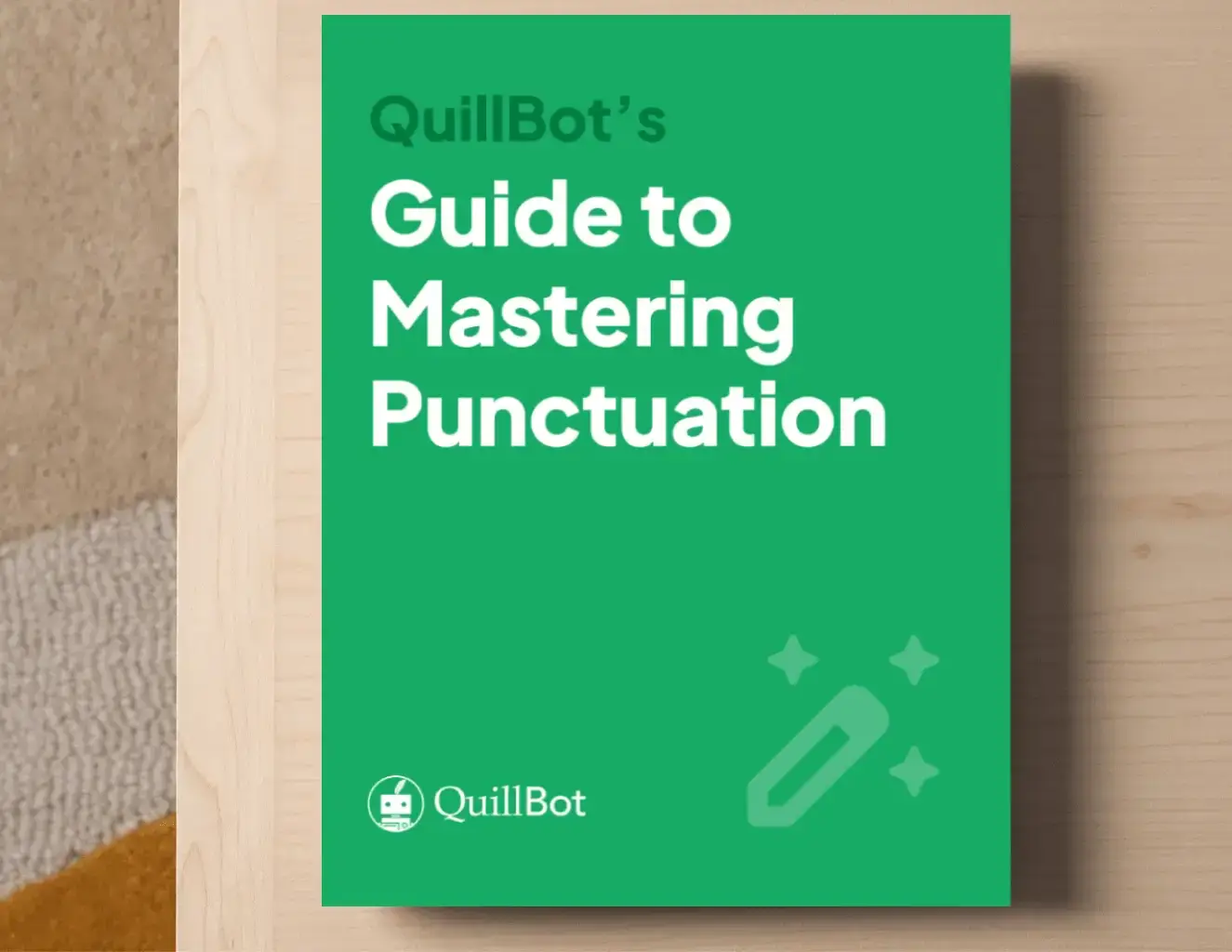Over | Meaning, Part of Speech & Examples
The word over can be a preposition of place or time, an adjective, an adverb, or the particle of a phrasal verb. It is part of many idiomatic phrases, like “over the top” and is the opposite of “under” in many contexts.
Need to figure out how “over” is being used in a sentence (i.e., its part of speech)? Ask QuillBot’s free AI Chat for help?
Let’s talk about it over lunch.
Is the soccer match over yet?
Just hang it over, like this.
Can we go over it one more time, just to make sure?
Table of contents
What part of speech is over?
The part of speech of over is usually a preposition when it’s referring to a location or period of time. If it’s part of a phrasal verb like “get over,” “over” is either categorized as a type of adverb or the particle of the phrasal verb. The part of speech of “over” is an adjective when it means “finished.”
Over part of speech
| Preposition | Put a cloth over the bowl so the dough doesn’t dry out. |
| Adverb | What did you say I should put it over? |
| Particle of a phrasal verb | It took me a couple of weeks to get over my last cold. |
| Adjective | The lesson isn’t over yet. |
Is over a preposition?
The word over is a preposition that can indicate something is:
- Located directly above something else
- Covering something else
- On or to the other side of something else
- More than a specified amount
It can also mean “during” when referring to a period of time (e.g., “over the last few weeks,” “over the past year,” “over the winter,” etc.).
When “over” is used as a preposition, it comes before a noun, noun phrase, or pronoun called its object (or prepositional object).
The drone was hovering over the far end of the garden. [Directly above]
We put some old sheets over the furniture to protect it from the dust. [Covering]
He could hear the neighbors over the fence. [On the opposite side]
One by one, they jumped over the small stream. [To the other side]
By 1890, the population of Vienna was already well over a million. [More than]
I played a lot of pickleball over the summer. [During]
Is over an adverb?
If over has a prepositional meaning but its object isn’t stated, it’s typically categorized as an adverb (e.g., “The stream was so small that we could just jump over”).
When “over” is part of a phrasal verb, it tends to be categorized as an adverb in older grammars and as the particle of the phrasal verb in more modern grammars.
Why don’t you come over for coffee tomorrow morning? [Visit informally]
Let me think it over. [Consider]
I’m going on my break. Can you take over? [Assume responsibility]
“Over” is used in adverbial phrases like “over here,” “over there,” or “over by the door” to indicate a nearby location; here it’s usually classified as an adverb (e.g., “Put it over here, please”).
Is over an adjective?
When over is used with the verb “be” to mean “finished,” it’s an adjective (predicate adjective).
Only one more exam to go, then all the stress will be over.
Is over a verb?
The word over is not used as a verb in modern English.
Is over a noun?
Over rarely functions as a noun. However, it is a noun when used as a cricket term meaning “a set of six throws of the ball” (e.g., “Smith is bowling the next over”).
What does over the top mean?
The idiom be over the top means “exaggerated” or “excessive.” Go over the top means “behave in an excessive way.”
Here’s some money to buy food for the party, but don’t go over the top—we’re only expecting a few people.
In the context of the First World War, “go over the top” refers to soldiers climbing out of their trenches and advancing toward the enemy (e.g., “The men were due to go over the top at 7:30 a.m.”).
What does head over heels mean?
Head over heels is an adverbial phrase with two common meanings. It’s used:
- Literally to mean “like in a somersault.”
- Figuratively to mean “deeply” or “completely.”
That’s a surprise because I thought they were head over heels in love.
What does game over mean?
If you say something is game over, you mean that there is no chance of an attempt succeeding anymore.
Sales were really bad, and we were worried it could be game over for the startup.
What does mind over matter mean?
If you use mind over matter, you stay in control because you use your mental strength and don’t let your body or feelings get in the way.
What does get over it mean?
If you tell someone to get over it, you’re referring to a specific situation and advising them to accept it and stop being upset or frustrated about it.
We were all disappointed by the decision, but we need to get over it and focus on our other options.
Frequently asked questions about over
- What does over and over mean?
-
The adverbial phrase over and over means “repeated excessively” (e.g., “He was playing the same song over and over all day long”).
If you’re trying to work out the meaning of “over and over” in a specific context, why not ask QuillBot’s free AI Chat?
- What does overkill mean?
-
If you say something is overkill, you mean that it’s “too much” or “excessive” (e.g., “I think three Christmas trees might be overkill, don’t you?”).
Over functions as a prefix in the word “overkill.”
QuillBot’s free AI Chat can help you with the meaning of figurative words and expressions like “overkill.”
Cite this QuillBot article
We encourage the use of reliable sources in all types of writing. You can copy and paste the citation or click the "Cite this article" button to automatically add it to our free Citation Generator.
Challenger, T. (2025, November 21). Over | Meaning, Part of Speech & Examples. Quillbot. Retrieved February 20, 2026, from https://quillbot.com/blog/sentence-and-word-structure/over/

